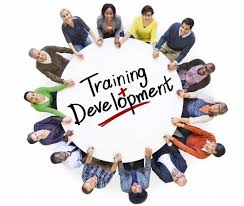The Importance of Training: A Key to Growth and Success
Introduction
Training is a critical component of both personal and professional growth. It equips individuals with the skills, knowledge, and confidence needed to excel in their roles and adapt to changing environments. Whether you’re an employee, a student, or a professional, continuous training can help you stay competitive and reach your full potential. Get Hr & IT training From the Best Hr Consulting Firm in Lucknow.
Types of Training Programs
- Corporate Training:
- Onboarding Training: Helps new employees understand the company’s culture, policies, and job expectations.
- Skill Development Training: Focuses on specific skills required for a job, such as communication, leadership, and technical skills.
- Compliance Training: Ensures employees are aware of company policies, legal regulations, and industry standards.
- Technical Training:
- Provides specialized knowledge and skills in areas like IT, engineering, and software development. It often includes hands-on experience with tools and technologies.
- Soft Skills Training:
- Enhances interpersonal skills, such as communication, teamwork, and problem-solving. These skills are essential for personal growth and career advancement.
- Vocational Training:
- Focuses on practical skills required for specific trades or professions, such as plumbing, electrical work, or culinary arts.
- Leadership and Management Training:
- Aims to develop leadership qualities and management skills, helping individuals become effective leaders and decision-makers.
Benefits of Training
- Increased Productivity: Well-trained individuals can perform tasks more efficiently and accurately, leading to higher productivity levels.
- Employee Satisfaction and Retention: Providing training opportunities can enhance job satisfaction and reduce turnover rates.
- Adaptability to Change: Training helps individuals stay updated with industry trends and new technologies, making them adaptable to changes in the market.
- Career Advancement: Continuous learning opens up new career opportunities and can lead to promotions and higher salaries.
- Enhanced Performance: Training programs can address specific weaknesses, leading to improved performance and confidence.
Best Practices for Effective Training
- Identify Training Needs: Assess the skills and knowledge gaps of individuals or teams to tailor training programs accordingly.
- Set Clear Objectives: Define specific, measurable goals for the training program to ensure it meets the desired outcomes.
- Use Diverse Training Methods: Incorporate a mix of methods, such as lectures, workshops, online courses, and hands-on exercises, to cater to different learning styles.
- Provide Ongoing Support: Offer continuous support and resources, such as mentorship and follow-up sessions, to reinforce learning.
- Evaluate and Adapt: Regularly assess the effectiveness of training programs and make necessary adjustments to improve their impact.
Conclusion
Training is an invaluable investment in personal and professional development. It not only enhances skills and knowledge but also fosters a culture of continuous learning and growth. Whether through formal education, workshops, or self-directed learning, training empowers individuals to reach their full potential and achieve success in their careers and lives. Here Top Recruitment Consultancy in Lucknow is always available for the Best practices in Training and Development.

